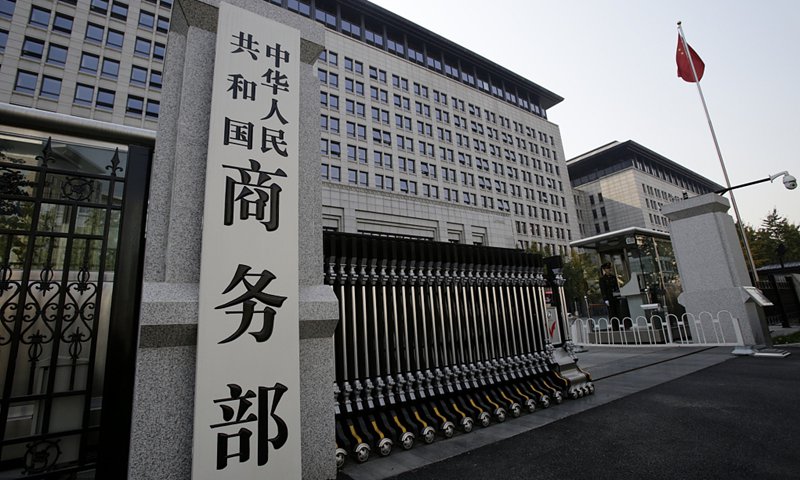SOURCE / MARKETS
China launches anti-dumping probe into wine imports from Australia

China’s Ministry of Commerce photo: Xinhua
China is the most important export market for Australian wine and other agricultural produce, offering the country zero tariffs on wines as part of a free trade agreement.
The investigation is expected to be completed by August 18, 2021 under normal circumstances, but could be prolonged until February 18, 2022, the ministry statement said.
Australia’s wine exports will be heavily curtailed if MOFCOM imposes new tariffs if the anti-dumping investigation turns out to be the case, Li Ruyi, an expert in wine science and business said.
Australia, echoing the “trade baton” policy of the US Trump administration, was the first Western country to shun Huawei’s 5G equipment. That discrimination against Huawei made Canberra a clear target for retaliation from Beijing, analysts say.
Australia’s wine exports to China have been surging since 2019 after the free trade agreement took effect earlier that year, which allowed Australian wines to import into China without any tariffs.
In 2019, Australia’s wine exports to China rose 12 percent year-on-year, becoming China’s biggest wine provider with a 37 percent share of China’s yearly wine imports – well ahead of France at 27 percent, Chile at 13 percent, and Italy at 6 percent, according to import data from the Global Trade Atlas.
“Unlike Europe, wine consumers in China like those imported from Australia," Li said. “They care a lot about the quality, taste and price of the wine, and it is less a symbol of culture, sophistication and class than it is in Europe," Li said.
Though the Australian wine industry may take a hit, “the investigation will not have a serious impact on the trade relations overall,” Yu Lei, chief researcher at the Research Center for Pacific Island Countries with Liaocheng University told the Global Times. “This is because wine trading between the two nations accounts for a relatively small portion of their total trade.”
Instead of a response to Australian politicians’ anti-China rhetoric, China’s anti-dumping probe on Aussie wine is part of normal market operations, since the global wine market is quite transparent, Yu added.
Despite this, the trade probe nevertheless launches against a background of intensifying China-Australia tensions. It might be regarded as a stern warning to Australian government, which has so far followed the US’ lead in stirring up animosity toward China, Yu noted.
Australia has relied heavily on the Chinese market in trade, but as a member of the Five Eyes intelligence alliance with the US, UK, New Zealand and Canada, it has supported the US’ anti-China campaigns and is now leading its bilateral relations with China to a freezing point.
In the first four months of 2020, crippled by the COVID-19 pandemic, the total volume of Australian wine exported to China dropped 28.11 percent compared to the same period last year, and sales were down by 21.18 percent, according to statistics from Wine Australia, an Australian government wine industry statutory authority.
From 2019 to 2020, the total value of Australia’s wine exports decreased by 1 per cent to $2.84 billion, as a result of measures taken to contain COVID-19, but the average value of Australian wine exports grew to $3.89 per liter free on board (FOB), the highest level in fifteen years, Wine Australia said.
Global Times
